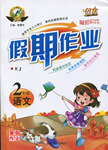题目内容
【题目】根据短文内容,从短文中的选项中选出能填入空白处的最佳选项,选项中有两项为多余项。
【1】 . You probably think you will never be a top student. This is not necessary so, however. Anyone can become a better student if he or she wants to. Here's how:
1. Plan your time carefully. When you plan your week, you should make a list of things that you have to do. After making this list, you should make a schedule of your time. First your time for eating, sleeping, dressing, etc. then decide a good, regular time for studying. 【2】 A weekly schedule may not solve all your problems, but it will force you to realize what is happening to your time.
2. Find a good place to study. Look around the house for a good study area. Keep this space, which may be a desk or simply a corner of your room, free of everything but study materials. No games, radios, or television! When you sit down to study, concentrate on the subject.
3. Make good use of your time in class. 【3】 Really listening in class means less work later. Taking notes will help you remember what the teacher says.
4. Study regularly. When you get home from school, go over your notes, review the important points that your teacher is going to discuss the next day, read that material. 【4】 If you do these things regularly, the material will become more meaningful, and you will remember it longer.
5. Develop a good attitude about tests. The purpose of a test is to show what you have learned about a subject. They help you remember your new knowledge. The world won't end if you don't pass a test, so don’t be over worried.
【5】 .You will probably discover them after you have tried these.
A. There are other methods that might help you with your studying.
B. Don't forget to set aside enough time for entertainment.
C. Take advantage of class time to listen to everything the teachers say
D. No one can become a top student unless he or she works hard.
E. Maybe you are an average student.
F. Make full use of class time to take notes of what the teacher says in class.
G. This will help you understand the next class.
【答案】
【1】E
【2】B
【3】C
【4】G
【5】A
【解析】
试题分析: 本文是关于有效学习的五个建议。分别是:计划好时间、选择好的学习地点、有规律地学习、利用好课堂时间、认真对待考试。
【1】E考查对上下文的理解和推理判断能力。根据下一句You probably think you will never be a top student.说明你想过你从未成为优秀生。说明你是一名普通的学生,故E正确。
【2】B考查对上下文的理解和推理判断能力。根据下一句A weekly schedule may not solve all your problems说明很满的时间安排不一定能解决所有的问题,一定要有娱乐的时间。故B正确。
【3】C考查对上下文的理解和推理判断能力。根据本段第一句Make good use of your time in class.可知要充分利用好课堂的时间,故C项符合上下文。
【4】G考查对上下文的理解和推理判断能力。根据前一句If you know what your teacher is going to discuss the next day, read that material.说明预习的重要性,预习以后会让我们的学习更高效。故G项内容符合上下文。
【5】A考查对上下文的理解和推理判断能力。根据下句You will probably discover them after you have tried these.说明除了文章中的这些方法以外,还有另外的方式。故A项符合上下文。

 鸿图图书寒假作业假期作业吉林大学出版社系列答案
鸿图图书寒假作业假期作业吉林大学出版社系列答案